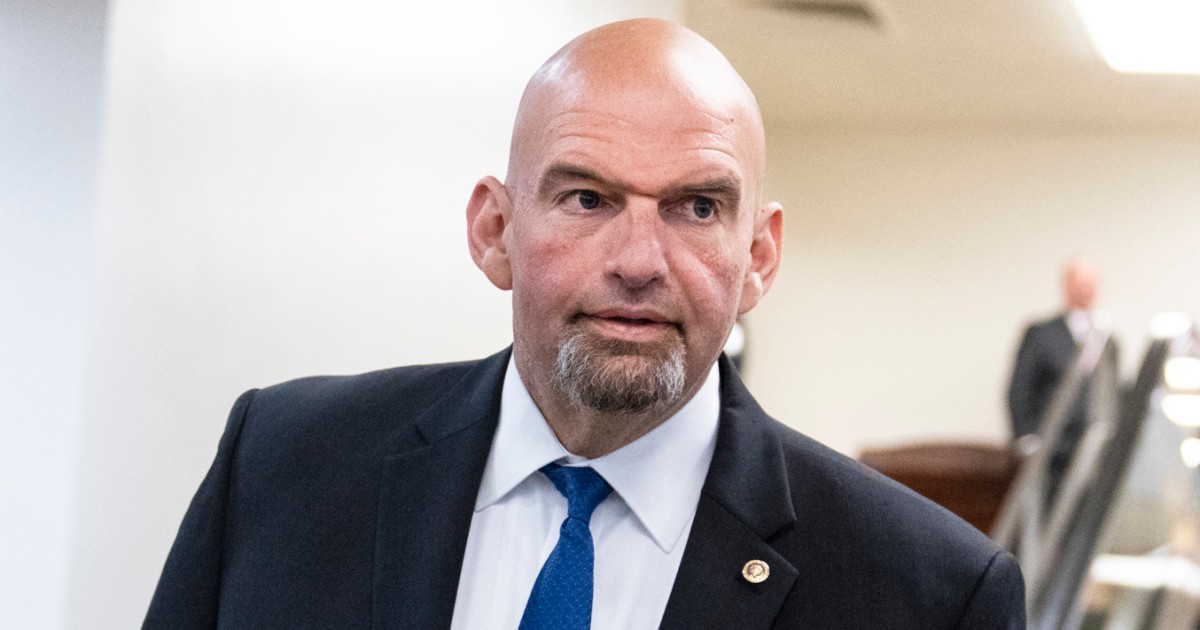In a shocking moment that rocked the political landscape, Senator John Fetterman publicly denounced his own party during a live appearance on “The View,” declaring, “My party crossed a line.” His candid remarks came as the government shutdown looms, and they expose a fracture within the Democratic Party that could reshape the upcoming election cycle.
 Fetterman, facing a panel of hosts eager to pin the blame on Republicans for the shutdown, took an unexpected turn. Instead of following the party line, he confronted the harsh realities of the situation, highlighting the millions of Americans at risk of losing food assistance and military families struggling without pay. His words struck a chord, revealing a deep discontent among Democrats and signaling that many are fed up with political games that jeopardize real lives.
Fetterman, facing a panel of hosts eager to pin the blame on Republicans for the shutdown, took an unexpected turn. Instead of following the party line, he confronted the harsh realities of the situation, highlighting the millions of Americans at risk of losing food assistance and military families struggling without pay. His words struck a chord, revealing a deep discontent among Democrats and signaling that many are fed up with political games that jeopardize real lives.
The fallout from Fetterman’s comments was immediate and intense. His honesty caught the Democratic establishment off guard, leading to a social media firestorm as viewers and political analysts reacted. This moment was not just a personal stand; it was a reflection of a party in turmoil, grappling with internal divisions between moderates and progressives.
 Fetterman’s remarks come amid a strategy by Democratic leadership to let the shutdown drag on, banking on public opinion to turn against Republicans. However, eight Democrats, including Fetterman, broke ranks, voting with Republicans to reopen the government, igniting backlash from party leaders who accused them of betrayal. The chaos within the Democratic Party is palpable, with progressive leaders denouncing moderates for caving under pressure, while moderates express exhaustion from being pulled into positions they do not support.
Fetterman’s remarks come amid a strategy by Democratic leadership to let the shutdown drag on, banking on public opinion to turn against Republicans. However, eight Democrats, including Fetterman, broke ranks, voting with Republicans to reopen the government, igniting backlash from party leaders who accused them of betrayal. The chaos within the Democratic Party is palpable, with progressive leaders denouncing moderates for caving under pressure, while moderates express exhaustion from being pulled into positions they do not support.
As Fetterman stood firm, the approval ratings for Senate Majority Leader Chuck Schumer plummeted, revealing a leader unable to unify his party. Progressive voices are now openly calling for his resignation, suggesting that the party’s internal conflict is reaching a boiling point. Meanwhile, Fetterman’s authenticity resonates with voters tired of the political status quo, as he embodies a shift towards prioritizing the needs of everyday Americans over party loyalty.

The implications of Fetterman’s statement extend beyond party lines. His call for truth and accountability challenges both Democrats and Republicans to reconsider their priorities. In a political landscape increasingly defined by tribalism, Fetterman’s moment of clarity serves as a reminder of the urgent need for leaders willing to prioritize the people they serve over party allegiance.
As this story unfolds, the political ramifications are significant. Fetterman’s bold stance may inspire other moderates to voice their concerns, potentially igniting a broader movement for change within the Democratic Party. With the next election cycle fast approaching, the question remains: will this moment catalyze a realignment in American politics, or will it fade into the background noise of partisan conflict? One thing is clear: the political landscape has shifted, and the call for honesty and integrity in leadership has never been more urgent.




